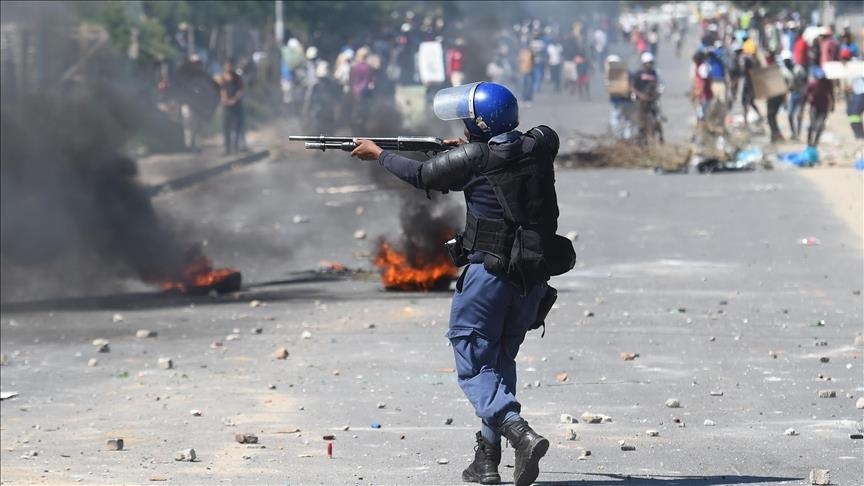JOHANNESBURG
Thousands of South Africans Wednesday marched to the streets to protest against the rising cost of living and unemployment in the continent’s most industrialized economy.
The protests are being led by two major trade unions calling on the government to address the rising fuel prices, increased rolling power cuts, job cuts and unemployment among other issues.
“The decision to hold a general strike /national shutdown comes as a result of the worsening socio-economic conditions for the working class and the marginalized poor communities,” the South African Federation of Trade Unions (SAFTU) said in a statement.
It said the cost of living is rising, and unemployment has soared.
Congress of South African Trade Unions (COSATU), the largest union in the country which is part of the social-economic strike, is demanding that the government take action against an economic meltdown in the country.
Marches have been organized in all the country’s nine provinces. “Stop putting profits before the people, COSATU demands a living wage,” read some of the placards at the protest.
“This economy is not working in the interest of the overwhelming majority of working-class people. Inequalities are widening and poverty is deepening,” Mametlwe Sebei, president of the General Industries Workers Union of South Africa, told Anadolu Agency on Wednesday.
Sebei said they support the national shutdown and demand the government put the minimum wage at 12,500 rands ($735) to enable workers to afford a decent living.
He said 75% of South African workers earn below 5,800 rands ($341) and the majority of workers cannot afford basic foods and transport due to low wages which have pushed many into hunger.
According to statistics, 34.4% of South Africa’s 60 million population is unemployed which translates to about 7.8 million people.
In March, a World Bank report described South Africa as the “most unequal” country in the world, with race playing a determining factor.
The report said despite three decades after the end of white-minority rule, 10% of South Africa’s white population still hold 80.6% of the financial assets in the country.
“In South Africa, the legacy of colonialism and apartheid, rooted in racial and spatial segregation, continues to reinforce inequality of outcomes,” said the report that assessed inequality in the Southern Africa region.
The Washington-based institution said South Africa ranked first among 164 countries in terms of inequality.

